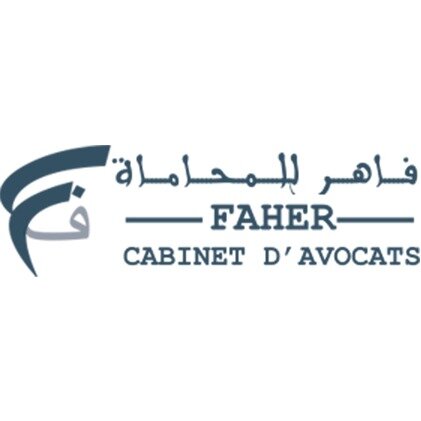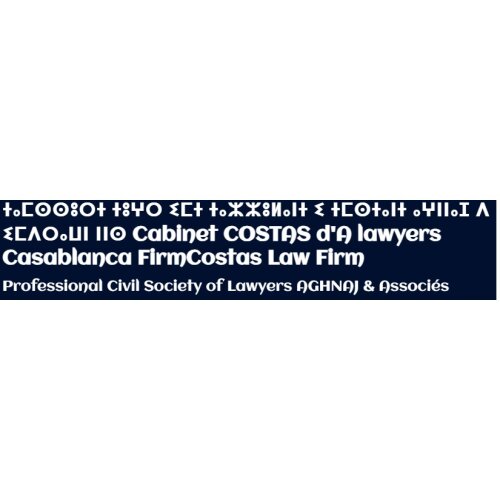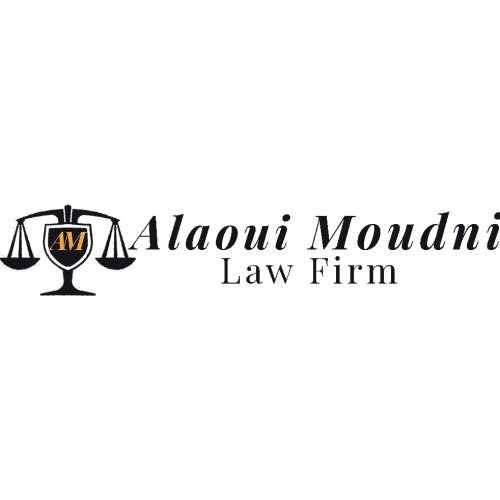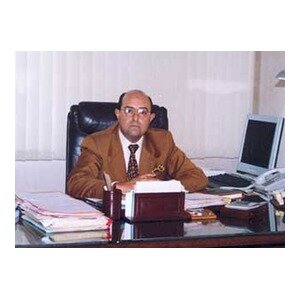Best Native People Lawyers in Morocco
Share your needs with us, get contacted by law firms.
Free. Takes 2 min.
Or refine your search by selecting a city:
List of the best lawyers in Morocco
About Native People Law in Morocco
The Native People of Morocco, often referred to as Amazigh or Berbers, have inhabited the region for thousands of years. They possess a rich cultural heritage and have lived traditionally in the mountainous regions and the fringes of the Sahara. Despite their deep roots and significant population, Amazigh communities have historically faced challenges in preserving their linguistic and cultural identity. Legal protections and advancements have been implemented to support their rights, access, and contributions to Moroccan society.
Why You May Need a Lawyer
There are numerous scenarios where individuals within the Native communities in Morocco might require legal assistance:
- Preservation and protection of cultural and linguistic rights.
- Land ownership disputes and issues of customary land use.
- Employment and discrimination matters specific to Native populations.
- Access to education and public services for Amazigh-speaking individuals.
- Navigating legal frameworks for cultural or traditional practices.
Local Laws Overview
Moroccan laws have been evolving to better address the rights and needs of the Native peoples:
- The Moroccan constitution now recognizes Amazigh as an official language alongside Arabic.
- Laws promoting cultural sites and heritage preservation are in place to protect the Amazigh legacy.
- Land rights can be complex, particularly in rural areas where traditional and communal land practices exist.
- Employment laws that prevent discrimination based on ethnic or linguistic lines aim to protect Native communities.
Frequently Asked Questions
What languages do Native people in Morocco speak?
Amazigh languages, including variants such as Tamazight, Tarifit, and Tashelhit, are spoken alongside Arabic and other languages in Morocco.
Are there legal protections for the Amazigh culture?
Yes, the constitution recognizes Amazigh culture and language, with efforts made to preserve and promote these through legal frameworks and state-backed initiatives.
How are land rights handled for Native communities?
Land rights can be complex, involving both state laws and traditional land practices. Legal consultation may be beneficial for disputes or claims.
Can Amazigh people access public services in their language?
Efforts are underway to increase access to services in Amazigh languages, though disparities may exist, and legal advice might be needed in specific areas.
Is there a specific legal framework for Native people in employment?
Employment laws in Morocco aim to prevent discrimination; however, reported issues may require legal guidance or assistance.
What cultural rights are protected under Moroccan law?
Morocco has legal measures to protect cultural heritage, including language use, traditional practices, and preserving cultural sites.
How are disputes involving traditional practices or customs resolved?
Disputes may be resolved through both formal legal systems and customary administrative practices, depending on the case specifics.
Are there regional differences in the application of laws for Amazigh people?
Yes, regional variations can exist due to the historical and cultural diversity across Morocco. Local legal advice may be required.
Can the Amazigh participate in local governance?
Legal frameworks encourage participation, yet actual representation can vary widely and may require advocacy and legal support.
How can I seek legal aid if facing discrimination as a Native Moroccan?
There are organizations and legal professionals specializing in discrimination cases, offering support and legal recourse.
Additional Resources
For further assistance and information, consider reaching out to:
- The Royal Institute of the Amazigh Culture (IRCAM): A national institution dedicated to the Amazigh language and culture.
- Ministry of Culture, Youth, and Sports: Provides resources and support for cultural preservation.
- Local NGOs and advocacy groups: These can offer localized support and guidance specific to native rights.
Next Steps
If legal assistance is needed, consider the following:
- Consult with a lawyer specializing in indigenous or cultural rights within Morocco.
- Reach out to local or national organizations that support Native communities for advice and potential legal aid.
- Ensure documentation and details of any legal issue are prepared clearly to facilitate efficient legal support.
- Stay informed about the ongoing legal changes regarding Native rights for strategic advocacy and self-representation.
Lawzana helps you find the best lawyers and law firms in Morocco through a curated and pre-screened list of qualified legal professionals. Our platform offers rankings and detailed profiles of attorneys and law firms, allowing you to compare based on practice areas, including Native People, experience, and client feedback.
Each profile includes a description of the firm's areas of practice, client reviews, team members and partners, year of establishment, spoken languages, office locations, contact information, social media presence, and any published articles or resources. Most firms on our platform speak English and are experienced in both local and international legal matters.
Get a quote from top-rated law firms in Morocco — quickly, securely, and without unnecessary hassle.
Disclaimer:
The information provided on this page is for general informational purposes only and does not constitute legal advice. While we strive to ensure the accuracy and relevance of the content, legal information may change over time, and interpretations of the law can vary. You should always consult with a qualified legal professional for advice specific to your situation.
We disclaim all liability for actions taken or not taken based on the content of this page. If you believe any information is incorrect or outdated, please contact us, and we will review and update it where appropriate.
Browse native people law firms by city in Morocco
Refine your search by selecting a city.















